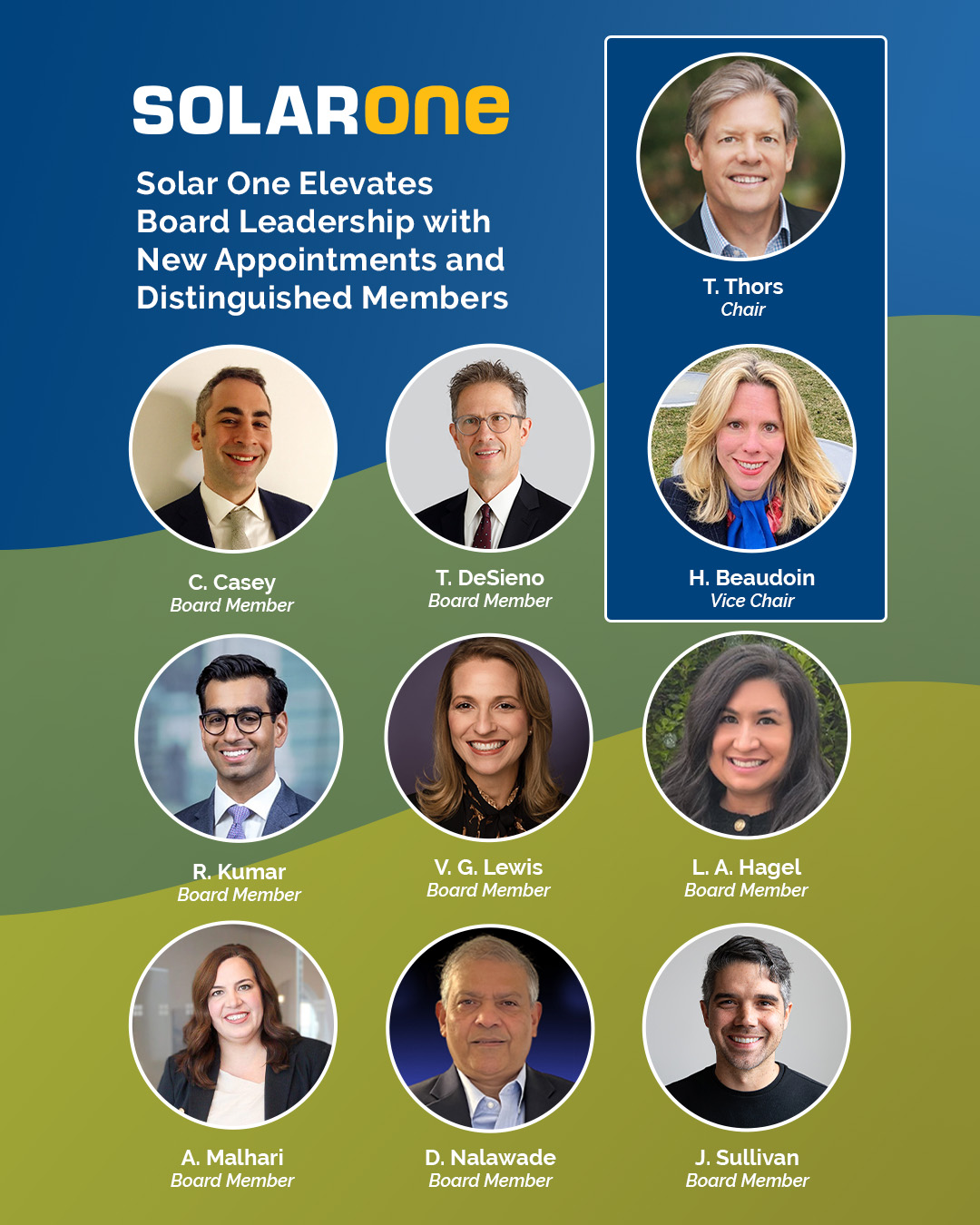
INTRODUCTION
Welcome to Solar One
Solar One is a 501(c)(3) not-for-profit organization whose mission is to design and deliver innovative education, training, and technical assistance that fosters sustainability and resiliency in diverse urban environments.
Introduction
Solar One fosters sustainable practices and environmental equity across New York City through innovative programs in K-12 environmental education, green workforce training, solar installation technical assistance, and eco-park stewardship. By catalyzing new ways of living and working that respond to a world affected by climate change, Solar One is transforming the way people think about energy, the urban environment, and resilience. Solar One strives to bring those most affected by environmental injustice to the forefront of developing and benefitting from the clean energy economy.

Green Design Lab
Solar One is recognized as a leader in environmental STEM education in NYC. For over 13 years, Solar One’s K-12 education program has reached nearly 40,000 students, in all five boroughs of NYC and Newark, NJ. Learn more about our programs for teachers, students and career-readiness learning tracks.

Green Workforce
Solar One provides a skills development curriculum in basic construction, electrical, solar panel installation, and maintenance of high efficiency heating and cooling systems. Learn more about how we are accelerating access to clean energy jobs and the green economy.
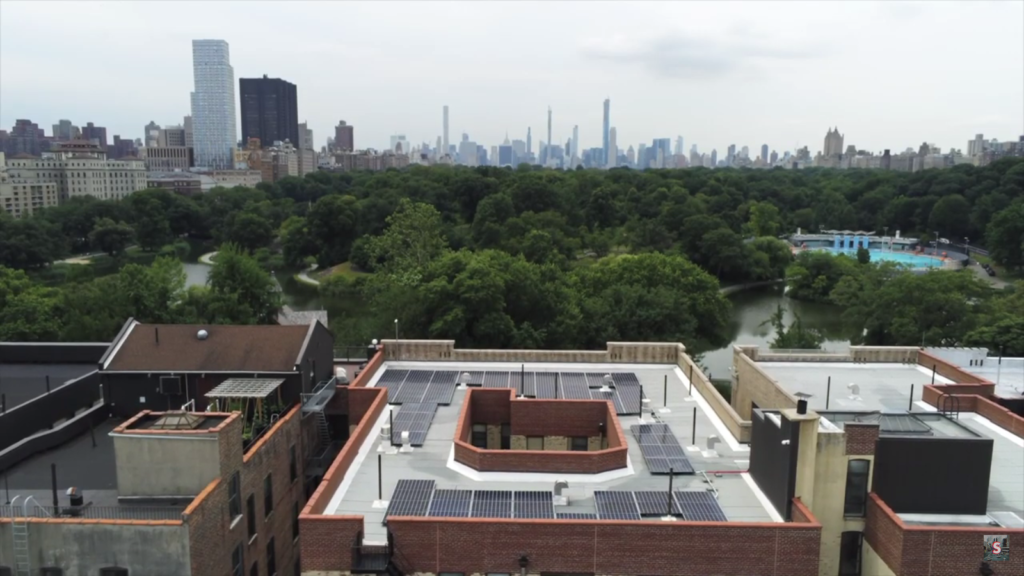
Here Comes Solar
Through solar expertise, a successful technical assistance model, and strong partnerships, Solar One is making the benefits of solar energy systems accessible in NYC’s historically underserved communities. Learn more about the impact of the program and how you can participate.

Stuy Cove Park
Stuy Cove Park serves the Lower Manhattan community and beyond as a resilient green space. Solar One manages this city-owned property in partnership with the NYC Economic Development Corporation. Learn more about the park’s history, current status and future plans.
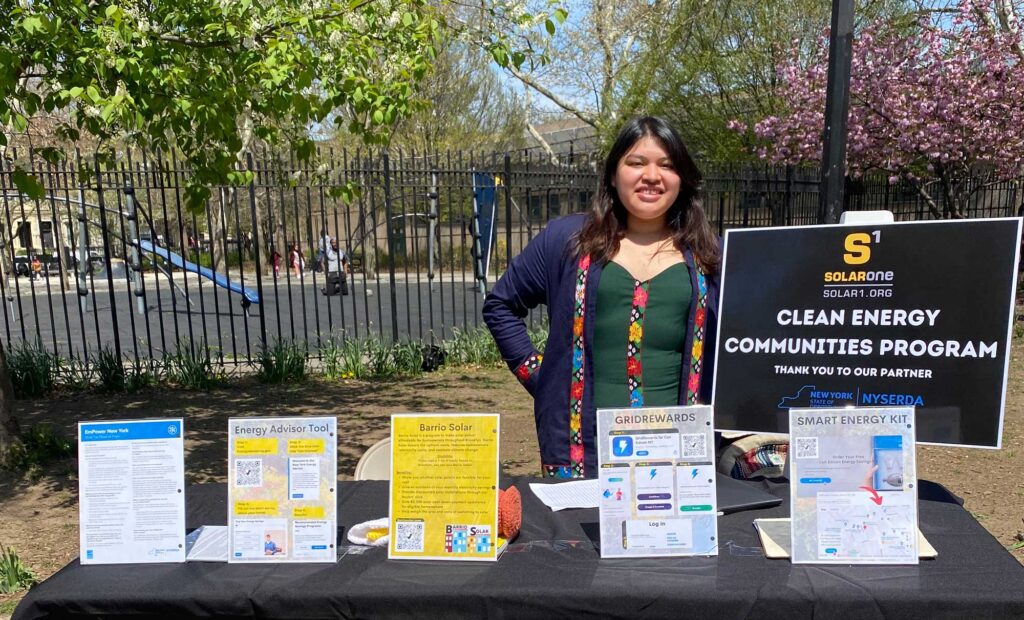
Clean Energy Communities
Solar One provides direct technical support to encourage leadership among NYC residents and building owners in clean energy adoption and reductions of greenhouse gas emissions. Learn more about incentives with Community Solar, Electric Vehicles, Energy Efficiency and Demand Response.
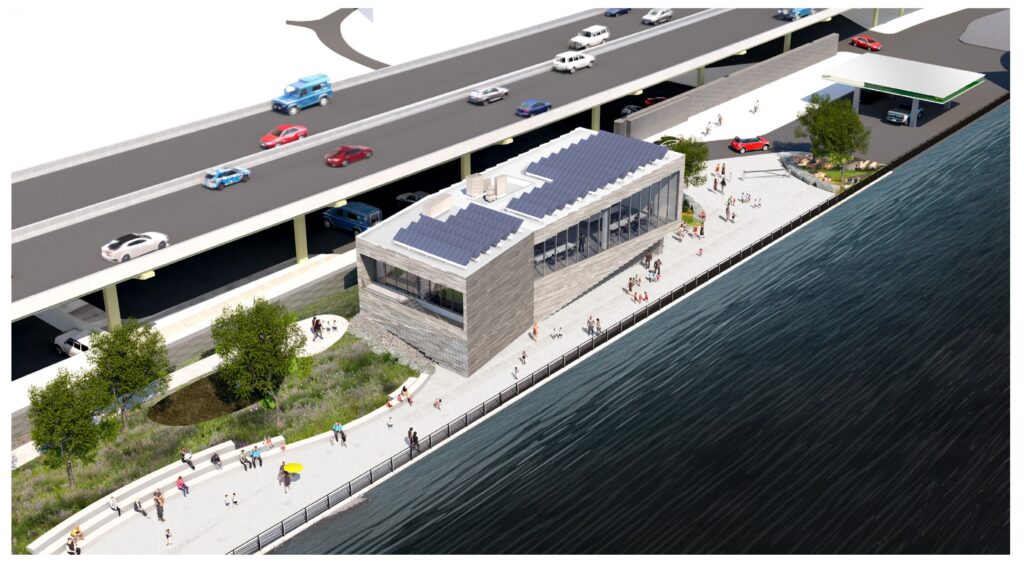
Solar One Environmental Education Center
The Solar One Environmental Education Center will be a model of resiliency for hurricanes, storm surges, and other potential emergency conditions. The Center will be an education destination for thousands of NYC public school children who participate in our Green Design Lab programs each year.
We’ve just earned our 2024 Platinum Seal with Candid.org. We are excited to share the work our nonprofit does through our Candid profile. Just click on the seal to the left to learn more.
Initiatives & Events
Events CalendarCategory Of Post
April 28 @ 11:00 am
Community Bio-Blitz & Chop ‘n’ Drop
Let’s do a little citizen science and start tracking the wildlife as they return to our newly redesigned park. We’ll use inaturalist and a host of identification tools to try […]

Category Of Post
May 2 @ 6:00 pm
Rooftop Solar Tour
NYC Residents: Curious about Solar? See it Up Close May 2nd Thinking solar for your building? Join UHAB and Solar One for a FREE tour of an HDFC rooftop solar […]
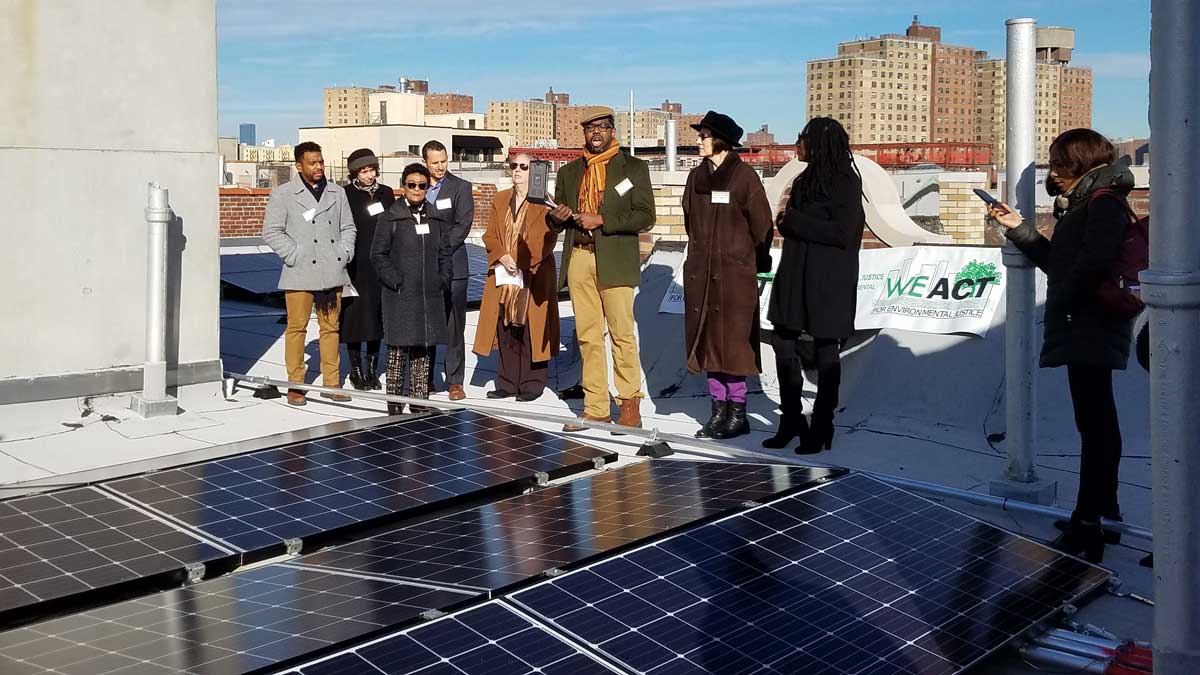
Category Of Post
May 18 @ 10:00 am
Solar Charger Community Showcase- Newark Resilient Solar Initiative: East Ward
The Resilient Solar Initiative, powered by Solar One and funded by National Oceanic and Atmospheric Administration (NOAA), is a high school internship program in partnership with the City of Newark’s […]

Category Of Post
June 1 @ 10:00 am
Solar Charger Community Showcase- Newark Resilient Solar Initiative: North Ward
The Resilient Solar Initiative, powered by Solar One and funded by National Oceanic and Atmospheric Administration (NOAA), is a high school internship program in partnership with the City of Newark’s […]

Category Of Post
June 15 @ 10:00 am
Solar Charger Community Showcase- Newark Resilient Solar Initiative: South Ward
The Resilient Solar Initiative, powered by Solar One and funded by National Oceanic and Atmospheric Administration (NOAA), is a high school internship program in partnership with the City of Newark’s […]

Featured News
See All NewsCategory Of Post
April 15, 2024
Letter to NY City Council Calls for More Robust Climate Investment
Climate Works for All, a coalition of environmental Justice, community advocacy and labor groups, has called on the City Council to ask for new climate investments. Some of the priorities […]

Category Of Post
March 28, 2024
Will Solar Power Be Affected By the Solar Eclipse?
On April 8, 2024, a solar eclipse will start on Mexico’s Pacific coast around 11:07 a.m. PDT, traveling across parts of the U.S. and Canada until 5:19 p.m. EDT. Because […]

Category Of Post
March 13, 2024
Record Warm Winters Are Not Cool
Once again, record-breaking temperatures were recorded in all of the lower 48 U.S. states. Average temperatures were more than 5 degrees Fahrenheit above normal, eliminating the ice cover on the Great […]
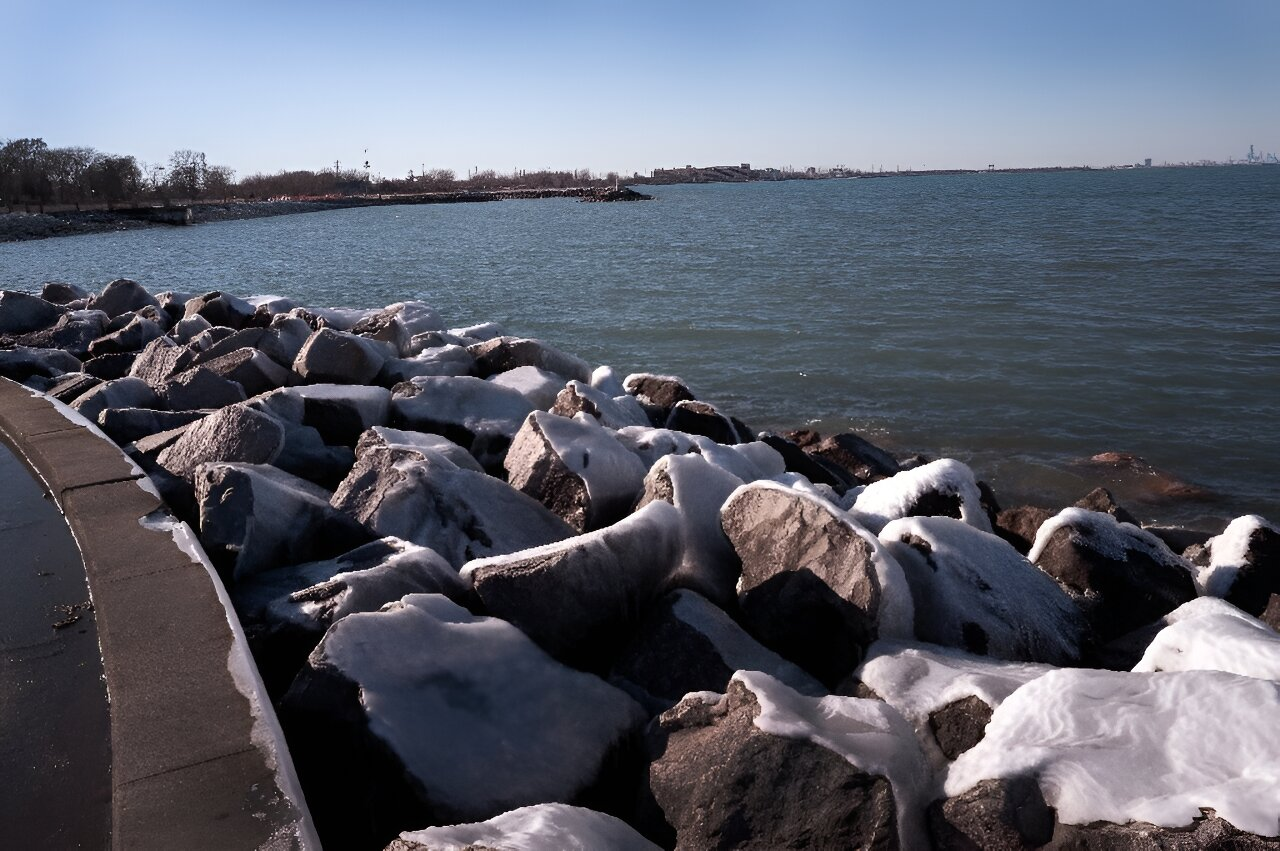
Category Of Post
March 12, 2024
NYC Clean Energy Advocates Host Rooftop Rally to Support Affordable Solar
NEW YORK CITY (March 7, 2024) –Today, a coalition of clean energy advocates, policymakers, and local residents convened for a Brooklyn rooftop rally to support affordable solar power initiatives proposed […]
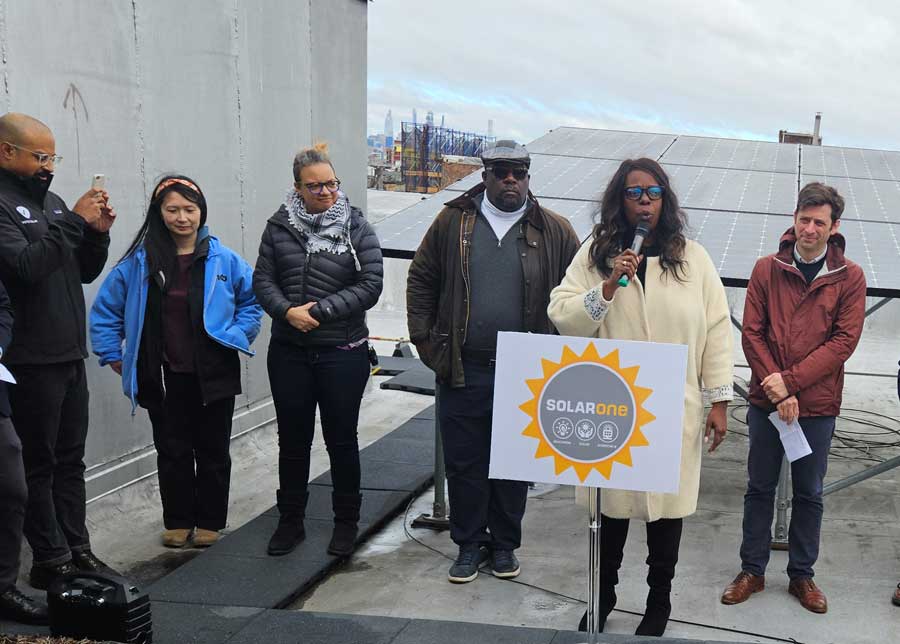
Category Of Post
February 29, 2024
New Bill to Reduce Single Use Plastic Set to Pass in Albany
New York City first added a recycling law to the books way back in 1989, but recycling rates have remained stubbornly low: about 20% for households and 25% for businesses. […]

Category Of Post
February 14, 2024
The East Coast Is Sinking
Major cities on the U.S. Atlantic coast are sinking, in some cases as much as 5 millimeters per year – a decline at the ocean’s edge that well outpaces global […]

Category Of Post
February 7, 2024
Solar One Elevates Board Leadership with New Appointments and Distinguished Members
FOR IMMEDIATE RELEASE CONTACT: Alonza Robertson / Solar One Communications Manager M: 212.920.1679 E: alonza@solar1.org New York, N.Y. – February 7, 2024 – Solar One, a leading green energy […]
